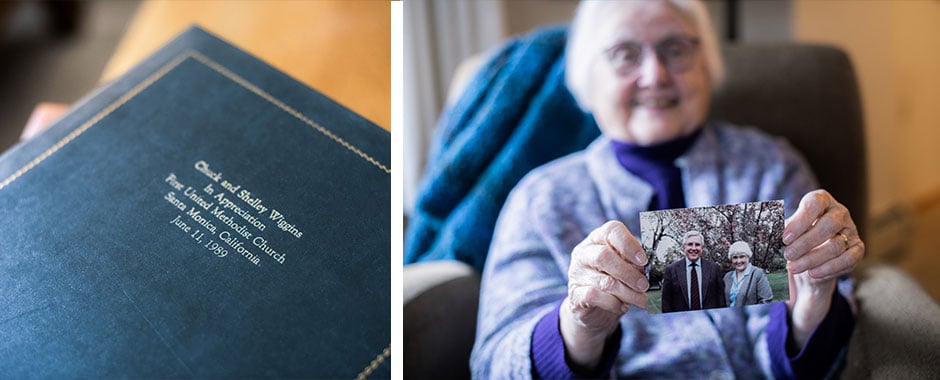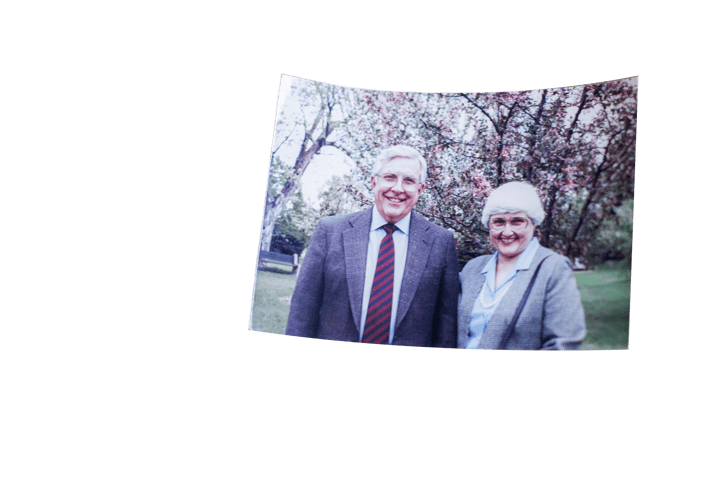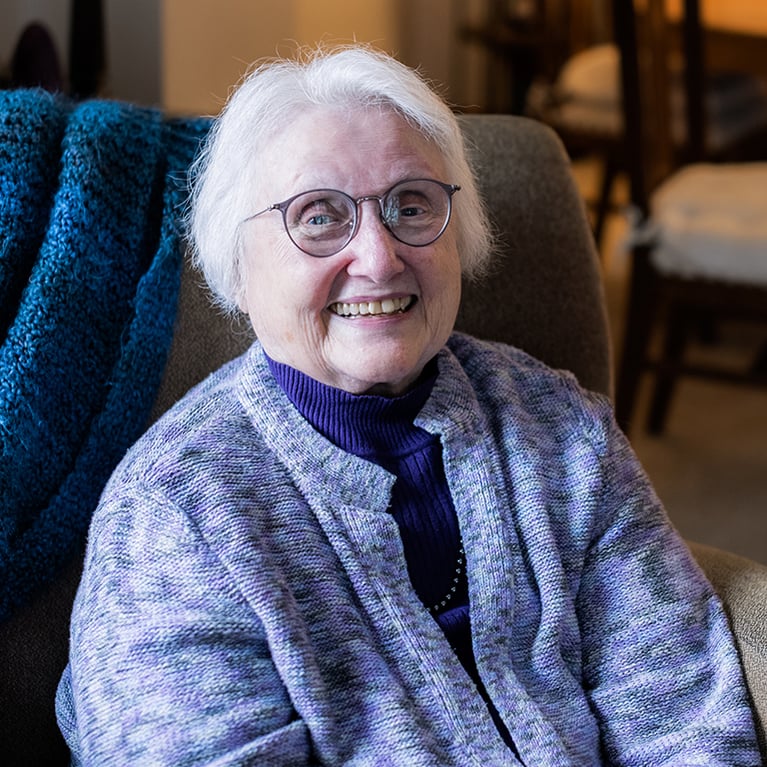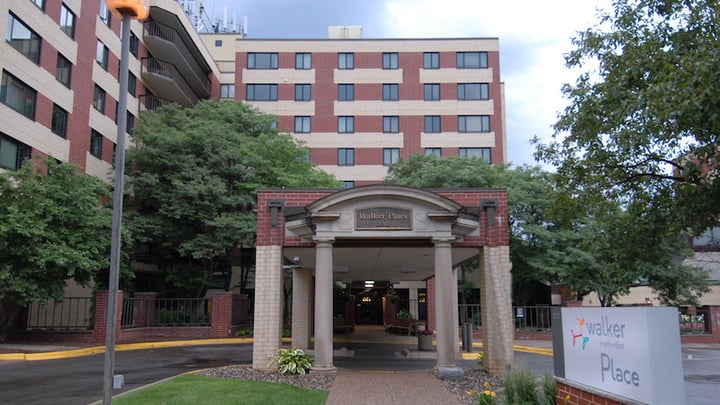Where It All Began
“Let's see. Both of us were born and raised there—both Chuck and I were Californians. The long-ago life that we led was all in southern California. I was born and raised in Orange County. He was born and raised in San Bernardino County, so we're both southern Californians. Chuck was a United Methodist minister and went through college and seminary there and I went through the college and taught for only four years. And in those days, it was easier to stay home and be a mama, and I was happy to do it. And so we had our children. Our first daughter Erin was born in 1960, and Beth was born two and a half years later.
It was a good life. In every case, we lived in places where there was structure. I've often wondered how it would feel when you have to leave one job and go to another job and into a new place where you know no one; I just think that would be very, very difficult. Well, if you're a Methodist minister, you miss all of that. And that's a good thing because they say goodbye to you at one church and they welcome you to another church, and there are people who already know your name before you ever meet any of them. And it's a wonderful thing. So that was our life.
We left Santa Monica when finally Chuck felt he needed to retire and did. And we came here to Minnesota.”

Careers, Calling, and Motherhood
“We were in the San Fernando Valley for a few years, Pasadena for a number of more years, San Diego for about 15 years, and the last 20 years were in Santa Monica. So all urban settings, all in southern California, and none of those places did we choose, but all of them were great places to live.
Earlier in life I was a teacher for 4 years, teaching 6th grade—which is my favorite age. I was much busier as a wife and an active member of a local church than I would have been if I had stayed less involved in the church and more involved in a career of my own, like teaching. It was kind of bittersweet when I realized this after retiring from teaching. Retirement was kind of the end of one of my life, in a way. And that was a little bit of an adjustment, but not much of one.”
Why Minnesota?
“Retirement. Our older daughter lives in Ohio, and our younger daughter came here to college, fell in love with all things Minnesota, and stayed when she graduated, and she won the booby prize — us! We moved close to be closer to her.
“And coming back here, one of the most exciting things was snow. We really enjoyed the snow. Our older daughter, Erin, is part of a big family in Ohio, central Ohio. And she didn’t ‘need’ us. So we moved here so we could be helpful to our younger daughter who really didn’t need us either,” she says with a laugh.
“I have one granddaughter Lydia, who’s 22. She is Erin’s daughter, and she lives here in town with her Aunt Beth. And they get along really very, very well. In fact, I haven’t talked to them today, but Lydia was working on some spectacular Italian, I call it a casserole. I’m sure you call it a hotdish; I’m learning slowly. And so they’ll tell me about it tonight.”

A Parkinson’s Diagnosis
When the Wiggins moved to Minnesota, they became first-time homeowners when they purchased their home in the Highland Park neighborhood in St. Paul.
“We spent 15 years of retirement in St. Paul in Highland Park, bought the first house we’d ever purchased in our whole long life. That was exciting. Yes, we were pretty excited about it. It’s a little house in Highland Park and if you know what Highland Park is like, you’ve probably seen a house just like ours.”
So what brought you to Walker Methodist?
“It was harder to do the transition than it was to retire in 1996 simply because, by the time we needed to move to Walker, Chuck and I had made the decision ourselves. He was really battling Parkinson’s Disease, and he did it beautifully.
“We moved in on the first day of December 2010. And my husband had been dealing with Parkinson’s for some time before that, and Walker Place seemed like the best place for us when we needed to make some heavy-duty decisions."
.jpg?width=720&height=405&name=Blog-Hero-2%20(3).jpg)


.jpg?width=400&height=225&name=Blog-Hero-1%20(3).jpg)
.jpg?width=400&height=225&name=Blog-Hero-3%20(3).jpg)
.jpg?width=400&height=225&name=Blog-Hero-2%20(3).jpg)





